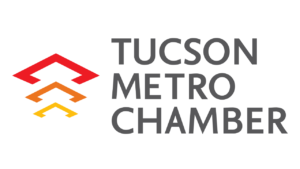SIGN IN
The IMPACT | January 2025

The IMPACT | January 2025
Why A Healthy Workforce Matters for Pima County’s Economic Growth

The path to economic prosperity is more than just about creating jobs or attracting businesses – it's about developing, nurturing and sustaining a healthy, local workforce. As your Tucson Metro Chamber moves into its new phase and continues its advocacy efforts, we must reinforce that workforce development and community well-being are inseparable components of sustainable economic growth.
Tucson's Workforce Landscape
Our region faces both challenges and opportunities in workforce development. With a population of over one million in the greater Tucson area, our workforce statistics tell an important story:
- Despite recent gains, the median household income in Tucson stands at $67,929, significantly below the national average of $78,500
- Nearly 18% of Tucson residents live below the federal poverty line
- The city's unemployment rate hovers around 4.2%, with higher rates in historically under-resourced regions
- Over 60% of Tucson's workforce is employed in five key sectors: healthcare, aerospace and defense, education, technology, and tourism
The Pillars of a Healthy Workforce
A truly healthy workforce requires more than just job opportunities. It demands a holistic approach that addresses fundamental human needs. When workers struggle with basic necessities, their ability to participate fully in the workforce is compromised, creating a cycle that impacts both individual prosperity and overall economic growth.
Housing accessibility stands at the forefront of these needs. In Tucson, where the average rent has increased by 25% since 2020, nearly 45% of renters are considered cost-burdened, spending more than 30% of their income on housing. When workers spend an outsized portion of their income on housing, it limits their ability to invest in education, healthcare, or career development.
Healthcare accessibility is equally crucial. Approximately 13% of Tucson residents lack health insurance, affecting their ability to maintain steady employment. Workers who can't afford preventive care often face chronic health issues that affect job performance and attendance. The impact extends beyond individual workers to affect business productivity and healthcare costs across our region.
Childcare accessibility continues to be a critical barrier for many in our workforce. In Pima County, the average cost of childcare exceeds $10,000 per year per child, making it unaffordable for many working families. When reliable, affordable childcare isn't available, talented individuals – particularly single women of color who make up a great percentage of front-facing jobs – are often forced to choose between career advancement and family responsibilities. By advocating for expanded childcare options, we're not just supporting families; we're unlocking workforce potential that our Pima County economy needs.
Creating Pathways to Prosperity
When basic needs are met, we see a transformative effect on workforce participation and economic mobility. Pima County residents struggling to make a livable wage often have the skills and drive to succeed but lack the foundational stability needed to access educational and employment opportunities. By addressing these fundamental needs, we create pathways to prosperity that benefit our entire community.
Transportation reliability, for instance, can be the difference between maintaining steady employment and cycling through jobs. Food security allows workers to focus on skill development rather than day-to-day survival. When we address these basic needs, we're not just helping individuals – we're building a more resilient and productive workforce.
Growing Our Own: The Power of Developing Local Talent
Perhaps most crucial to Tucson's long-term economic health is our ability to develop and retain local talent. This process must begin early – by middle school, students are already forming ideas about their future careers. By engaging students at this critical age, we can build a pipeline of skilled workers who are invested in our community's success.
Local talent development brings Pima County unique advantages:
- Deeply established community connections that encourage long-term commitment to the county
- Understanding of local culture and business needs, particularly small business needs
- Strong networks that facilitate career advancement
- Reinvestment of success back into the community
The Role of Business in Workforce Advocacy
The business community must be at the forefront of workforce advocacy efforts. When businesses actively support initiatives for affordable housing, healthcare access, and educational opportunities, they're investing in their own future success. A healthy workforce translates directly to increased productivity, reduced turnover, and stronger business growth.
Looking Forward to 2025
As we continue to grow Pima County’s economy, we must remember that workforce health and economic health are inextricably linked. By advocating for policies and initiatives that support workforce wellness, we're laying the groundwork for sustained economic growth and community prosperity.
As the Tucson Metro Chamber enters its next phase, we remain committed to championing these crucial workforce issues. Through continued collaboration with business leaders, educational institutions, and policymakers, we can create the conditions needed for both workers and businesses to thrive in our community. Together, we can build a stronger, more resilient Tucson – one where economic opportunity is accessible to all, and where local talent becomes our greatest economic asset.

Be part of the change! Stay engaged, share your thoughts, and subscribe to our updates:
For press release and advocacy alerts, subscribe to our press release page here.
To be updated on upcoming events, subscribe to our calendar here.
To be notified of our bi-monthly blog posts, subscribe on this page.
Follow the Chamber on social media.
![]()
![]()
![]()
![]()
Images

